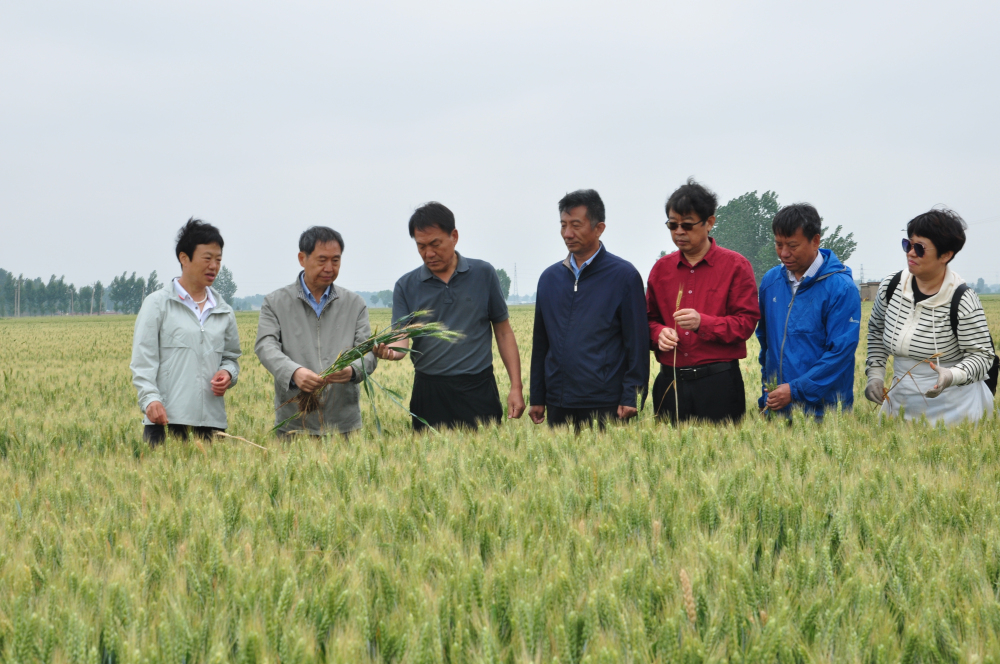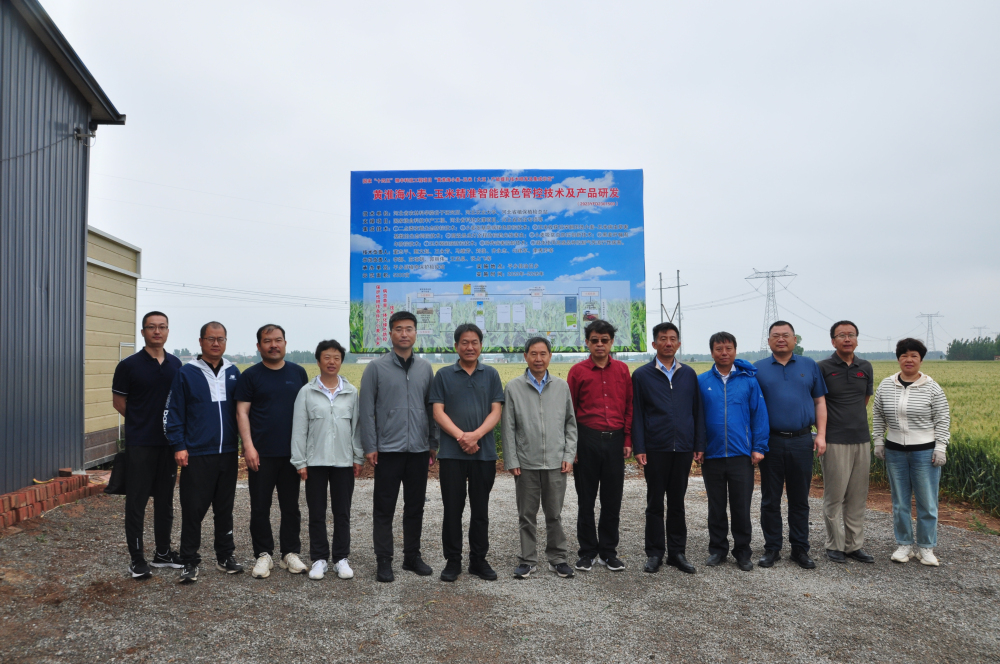On May 20, 2024, on the field test on key prevention and control techniques for wheat stem rot under conservation tillage conditions, Researcher DONG Zhiping from Institute of Millet introduced the occurrence patterns of wheat stem rot and the progress in comprehensive prevention and control technology research. He explained the reasons why the accumulation of wheat stem rot pathogens is faster and the disease is more severe in the wheat corn double cropping area. Based on the experimental results that the pathogens cannot infect the disease below the wheat sowing layer, he proposed the prevention and control technology of "deep plowing+seed treatment" as the main measure.
The expert group conducted on-site testing on the demonstration effect of prevention and control technology, and result showed that the stem rot rate of wheat in the conventional rotary tillage area (control) reached 72.6%; deep plowing after wheat harvest and deep plowing after corn harvest can significantly control the occurrence of wheat stem rot disease, with diseased stem rates of 26.8% and 25.4%, and control effects of 63.09% and 65.01%, respectively. The prevention effect of "deep plowing+seed treatment" is more significant, reaching over 80%, and can save more than 30% of drugs compared to conventional "one mix, one spray" prevention and control techniques. The leader of the expert group and academician KANG Zhensheng from the School of Plant Protection at Northwest A&F University fully affirmed the prevention and control effect of this technology. He proposed that the field has a large amount of fungi for wheat stem rot disease, and deep plowing and pressing down the bacterial source base in the sowing layer is an effective way to control this disease. From the test results, it can be seen that "deep plowing+seed treatment" has significant preventive effects and saves pesticides, making it an effective measure for green prevention and control of wheat stem rot disease. He suggested further refining the deep plowing technology to enable farmers to better master and promote its application.

Vice President WANG Qi of HAAFS pointed out that wheat stem rot is currently the main disease that endangers the food security of our province and even the whole country. Through systematic research, the research team has clarified the incidence pattern and developed effective prevention and control technologies, providing assurance for the food security of our province. He requested to continue refining the experimental plan from the perspective of convenient operation for farmers, application of agricultural machinery, and cost saving and efficiency increasing, to do a good job in demonstration and promotion, and to contribute to the effective control of the harm of wheat stem rot disease.

(Source from www.hebnky.com)